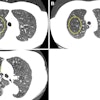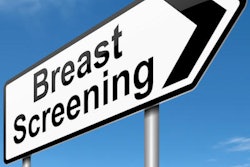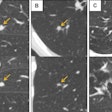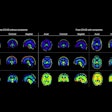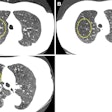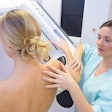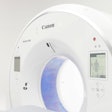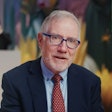
A U.K. clinical trial examining whether mammography screening should be offered to a broader range of women must be halted due to ethical and medical concerns, according to a letter published in BMJ by a group of longtime opponents to breast screening. But not everyone agrees, and the controversy looks set to continue.
In a strongly worded letter published on 16 September (BMJ), a group led by Dr. Susan Bewley raised concerns about the U.K. age-extension trial, which is examining whether the age range for screening should be extended to both younger and older women. They challenge the design of the trial as well as the qualifications of its chief investigator, calling the study an "out of control trial with ineffective oversight."
But this isn't the first time that the age-extension trial has been targeted by the group, which includes some of breast screening's most vociferous opponents, such as Dr. Peter Goetzsche, director of the Nordic Cochrane Center in Copenhagen. Several of the signatories to the letter have gone on record previously as stating that breast screening should be stopped for women of all ages.
The age-extension trial
In its National Health Service (NHS) Breast Screening Programme, the U.K. historically offered breast screening every three years to women 50 to 70 years old, but in 2012 this was extended to women 47 to 73 years old. At the same time, U.K. authorities noted they believed there was little evidence on the benefit of offering screening to women in the younger and lower age ranges.
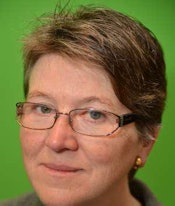 There is no overall mortality benefit from breast screening at any age if you look at the Nordic Cochrane review, stated Dr. Susan Bewley.
There is no overall mortality benefit from breast screening at any age if you look at the Nordic Cochrane review, stated Dr. Susan Bewley.Therefore, the NHS commissioned a study that would randomize the phase-in of the age extension, and collect data on breast cancer incidence and mortality for the following 10 years. Recruitment of women would continue through 2016, with follow-up continuing through the 2020s.
The age-extension trial has become a front on the ongoing war over breast cancer screening, however, with mammography opponents challenging the study design in several previous BMJ publications. This week's letter continues this angle of attack, claiming that women are not being informed about the potential harms of overdiagnosis, or the detection of early slow-growing cancer that would not grow into life-threatening or clinical disease. The authors also raise the question of whether women are even aware they are in a randomized clinical trial.
"Our concerns relate to the science and ethics of this trial. Women should always be told the full facts -- here they are unwittingly participating in a research trial without fully realizing that the harm/benefit ratio is uncertain," Bewley said. "There is no overall mortality benefit from breast screening at any age if you look at the Nordic Cochrane review -- only a reduction in breast cancer mortality."
The Swiss example
The BMJ letter is being published concurrently with the Preventing Overdiagnosis conference, being held 15-17 September in Oxford, U.K. The speaking roster for the meeting includes a number of skeptics of aggressive medicine, as well as a keynote session chaired by Dr. Fiona Godlee, editor in chief of BMJ.
Speaking to AuntMinnieEurope.com from the conference, Dr. Michael Baum, emeritus professor of surgery and medical humanities at University College London, pointed to the Swiss Medical Board's recent -- and controversial -- recommendation to stop screening in the country. Like Bewley, Baum has previously expressed his opinion that mammography screening should be shut down.
"Launching an extended-age screening project now when there are so many uncertainties about screening women between 50 to 65 years, is insane. Secondly, the rollout of the National Health Service's program provides an excuse for the trial, but this predetermines the outcome which we won't know until 2022!" he noted. "Third, there is no hint in the leaflets provided to screening patients that they are in a controlled trial, which is unethical as they haven't had the opportunity for proper informed consent."
Baum set up the U.K.'s first breast screening program in 1987 and resigned 10 years later when he expressed concern that the new data emerging suggested benefits were exaggerated and harms ignored. He now believes the money spent on breast screening would be better used in preventing and treating cardiovascular disease -- which is five to seven times more likely to kill women older than 65 than breast cancer.
"In younger patients, screening throws us more false alarms and the potential harm increases. In older patients with comorbidities, life expectancy is being ignored," he said.
Baum's sentiment was echoed by Goetzsche, one of the co-authors of the BMJ letter and also the lead author or co-author on a number of other papers claiming that breast screening both fails to save lives and is actively harmful to women due to overdiagnosis and false positives.
"The psychological harm due to the many false-positive findings is, for example, very substantial and long-lasting; even three years later, women may still be suffering from it. The only interesting question that remains in relation to mammography screening is: Which country will be the first to stop it?" Goetzsche noted in an email to AuntMinnieEurope.com. "My own view is that screening should be stopped in all ages, as any utility analyses that take all the benefits and harms into account will invariably come out negative, as also shown by the independent Swiss Medical Board recently."
Personal attack?
The BMJ letter is likely to anger many mammography proponents, and some thought leaders have been openly skeptical of Bewley's criticisms about the U.K. age-extension trial.
"I find the communication less than persuasive, in particular the personal attack on the chief investigator," said Dr. Stephen Duffy, professor of cancer screening at the Wolfson Institute of Preventive Medicine at Queen Mary University of London. "Whether a study should proceed depends on the research question, quality of design, and the conduct of the study, not on whom the chief investigator is."
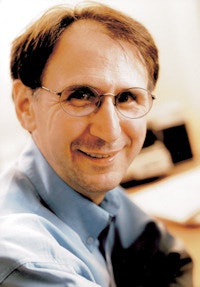 The authors' concern about overdiagnosis is misplaced, according to Dr. Stephen Duffy.
The authors' concern about overdiagnosis is misplaced, according to Dr. Stephen Duffy.
Duffy believes concern about overdiagnosis is misplaced, because studies that adequately account for lead time and underlying incidence trends find overdiagnosis to be a minor phenomenon. Also, he disagrees with the emphasis on all-cause mortality as an outcome, which is an inaccurate and inefficient surrogate for breast cancer mortality, the most important endpoint of breast cancer screening.
The letter by Bewley and colleagues does not provide persuasive reasons to support their opinion that the proposed trial is poor science or should be halted, pointed out Sir Nicholas Wald, professor of preventive medicine at the Wolfson Institute of Preventive Medicine, Barts and the London School of Medicine and Dentistry, and Queen Mary University of London.
Overdiagnosis is an issue with all cancer screening programs, and is one of the reasons that the value of screening for specific cancers needs to be assessed in randomized trials, he pointed out.
"It is scientific uncertainty that underpins the ethical position. If the value of screening is clearly favorable or unfavorable, a study to investigate this would be unnecessary and hence unethical. If the value is uncertain it is necessary and ethical to conduct a randomized trial to reduce the uncertainty," Wald said. "If trials show that screening reduces deaths from breast cancer, a separate analysis is needed on possible harms and costs. But if screening saves lives, it is probably a price worth paying."
Need for new evidence
Calling an ongoing trial "unethical" and calling for it to be stopped are strong words, according to Dr. Gabor Forrai, vice president and president-elect of the European Society of Breast Imaging (EUSOBI) based in Budapest.
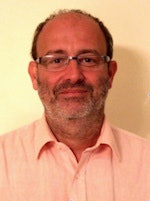 New evidence is likely to be of value to everybody in the field, said Dr. Gabor Forrai.
New evidence is likely to be of value to everybody in the field, said Dr. Gabor Forrai.
"It means that the continuation of the study would bring definitely more harm than possible advantages," Forrai said. "I don't see the dangerous new harms this study may produce. On the contrary, it may bring new evidence to the field."
According to U.K. data, it is a statistical fact that 33% of new breast cancer cases arise after 69 years of age, and 20% before 50 years of age. Therefore, it is of utmost importance to investigate the screening possibilities and results in these specific age groups, which cover altogether 53% of the new breast cancers, he commented.
Forrai also pointed to the age limits of 47 and 73 as nothing extraordinary: numerous European countries have limits lower than 47 and/or higher than 73 in their standard screening protocol.
"Is it realistic that experienced and developed countries such as Sweden, the Netherlands, Austria, France, and Hungary haven't ever included any statistician during the design of their screening programs and that they based them on 'unethical' grounds?" he said. "While the methods and details of any study may be calmly and scientifically questioned, to use this strong public wording will encourage women -- of any age -- to refrain from screening. This may cause real, evidence-based harm to them as their breast cancers would remain undiscovered."



